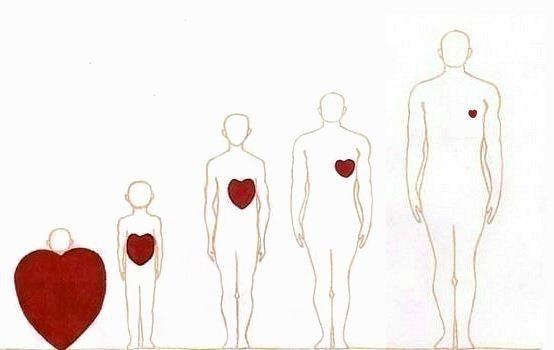 Because I faced the very serious reality of death at five years old I had shortly thereafter wondered–if you could die at five what was the point of being alive at all? I was already wondering this in the hospital, which was perfect because my brain injury was so massive that the doctors and nurses spoke to each other as though I wasn’t there at all. That level of candour taught me a lot about people and gossip, but most importantly it taught me about happiness and its sources.
Because I faced the very serious reality of death at five years old I had shortly thereafter wondered–if you could die at five what was the point of being alive at all? I was already wondering this in the hospital, which was perfect because my brain injury was so massive that the doctors and nurses spoke to each other as though I wasn’t there at all. That level of candour taught me a lot about people and gossip, but most importantly it taught me about happiness and its sources.
Maybe people bought new clothes they thought they looked good in, or maybe they went on a vacation to relax. Maybe they started exercising to feel physically better, or maybe they bought a puppy to keep them company. Maybe they had sex with a co-worker, or maybe they told a lie to make sure someone else didn’t have sex with a co-worker. Eventually it occurred to me that people were on a spectrum with suffering at one end and love at the other. And everything that everyone did was all a part of their effort to either move toward love and belonging, or away from suffering and separation.
There are a lot of ways to reduce suffering and increase happiness but individual people tend to pick their own familiar routes. As a society it is also important that we value our happiness as a group. In school when they taught us about Gross Domestic Product, I made a teacher angry by asking what meaning that had? What if we made 10 times as much money but we were all unhappy? What if this abstract number grew, but so did the suicide rate? What I learned through asking all of those questions—and years of questions afterwards—was that a lot of teachers don’t like questions.
 I recently heard a radio story about an election and a split government. 50% of the votes went to one extreme and 50% to the other. Both sides felt like the country had lost. Both sides described the situation as unfortunate and impossible. Can you see how they have been infected with limited thinking? Why can it only be one way or another?
I recently heard a radio story about an election and a split government. 50% of the votes went to one extreme and 50% to the other. Both sides felt like the country had lost. Both sides described the situation as unfortunate and impossible. Can you see how they have been infected with limited thinking? Why can it only be one way or another?
Why is winning only defined by you getting your way? Why can’t winning be about creating the greatest amount of happiness for the largest number of people? Why can’t each side say, “Okay, let’s lay out what we each want and see if there’s any overlap. If there is, we can do those things right away. Then we can look for things we’re willing to negotiate on, which allows each of our constituencies to be represented to an equal degree.” In short, what if we respected the fact that the “other side” will certainly have at least a few good ideas?
No matter what issue you’re looking at, if someone thinks the other side can’t possibly have anything useful to say then they are truly and fully brainwashed. It is the height of an ego’s arrogance to think that anything that we believe is always right and anything someone else believes is always wrong.
 We all have to stop wanting to win. We have to stop wanting more. We have to forgo power and wealth and status, and we have to start making the sort of decisions that lead to everyone experiencing more love and joy in their lives. We have to forget our beliefs and turn to love. We must trust love. To be loving is our purest self.
We all have to stop wanting to win. We have to stop wanting more. We have to forgo power and wealth and status, and we have to start making the sort of decisions that lead to everyone experiencing more love and joy in their lives. We have to forget our beliefs and turn to love. We must trust love. To be loving is our purest self.
If we want the world to change we have to change how we do things. It is no surprise to anyone that worldwide most political work from all sides is juvenile and dishonest. It’s time we set a new agenda—each of us in our own lives and collectively as a society. We have to begin by nurturing a culture of patience, respect and compassion because that is the only way we will experience a culture that is patient, respectful and compassionate.
Stop complaining about the people you disagree with because those complaints are your reality. Instead, use that energy to see what you agree with and do that. Because then that cooperation and support will be your reality. And living that life will affect the world just as positively as it will affect you.
Enjoy your day.
peace. s
Scott McPherson is a writer, public speaker, and mindfulness facilitator who works with individuals, companies and nonprofit organizations around the world.
I help people achieve better mental health by teaching them about reality.





One thought on “The Politics of Love”